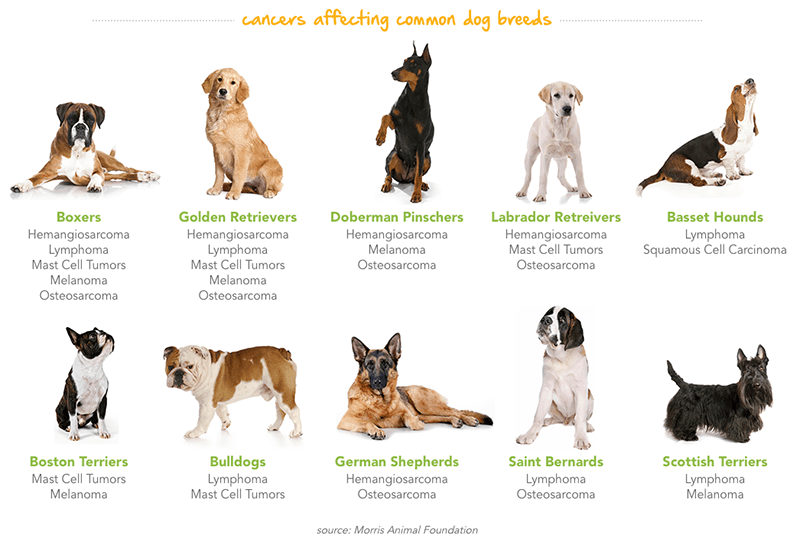Get the Facts: 7 Pet Cancer Myths Debunked

At PetCure Oncology, our goal is to educate pet owners about pet cancer. In this article, we will address common rumors, myths, and the questions we hear from pet owners to get to the truth about pet cancer. Still, we can’t stress enough that you should always consult your veterinarian when it comes to your pet’s health.
The Internet offers many resources to help you understand your pet’s health. The problem with finding information online is that many resources are either outdated or not credible. Although the World Wide Web is a great resource, it should never replace the information you receive from your veterinarian. Your doctor can more accurately assess your pet’s health by completing an in-person physical exam, reviewing the medical history, and having an in-depth conversation with you about any changes in behavior, diet, exercise, and so on.
True or False: Common beliefs about pet cancer
1. I heard microchipping could cause cancer in dogs and cats.
As microchipping is becoming more common and promoted by veterinarians and animal shelters, we have begun hearing rumors that microchipping can cause cancer. These have stemmed from reports that laboratory mice and rats developed foreign body-induced tumors. However, the mice and rats in question were already being used in cancer studies.
The American Veterinary Medical Association (AVMA) states:
“Tumors associated with microchips in two dogs and two cats have been reported, but in at least one dog and one cat the tumor could not be directly linked to the microchip itself (and may have been caused by something else) [ . . . ] based on our review of the studies, the risk that your animal will develop cancer due to its microchip is very, very low, and is far outweighed by the improved likelihood that you will get your animal back if it becomes lost.
You can read the reports of the laboratory mice and rats along with reports of the dog and cat mentioned above on the AVMA’s article under the Animal Microchips and Cancer section.
2. Feeding your dog a special diet can prevent cancer.

Just as in human cancer, there is no special diet or superfood that can prevent cancer in pets. However, some studies do show the benefits of different vegetables and herbal supplements in improving the overall health of a pet, both those with and without cancer. For example, University of Pennsylvania School of Veterinary Medicine treated dogs diagnosed with hemangiosarcoma with the Yunzhi mushroom, also known as the Coriolus versicolor mushroom. The results were promising, with the dogs treated with the mushroom having the longest survival times compared to other treatment studies conducted by the school. It should be noted that this is only one study and that more trials are underway. Furthermore, all dogs in this trial had already been diagnosed with cancer.
No definitive studies prove that a certain diet or supplement will prevent cancer. For more information about various pet supplements, check out the article written by the Animal Medical Center of New York.
When reading about how different herbal supplements and natural remedies can possibly cure cancer, make sure:
- To confirm that a board-certified veterinary oncologist wrote the article.
- That the study was a Food and Drug Administration (FDA) approved clinical trial – and that other studies have been conducted around the same ingredient.
- To look for legitimate studies published in peer-reviewed journals like the Journal of the American Veterinary Medical Association (JAVMA) or Journal of Veterinary Internal Medicine (JVIM), which covers veterinary studies in animal internal medicine, oncology, neurology, and cardiology.
3. Spaying and neutering can cause cancer in my pet.
Though it is generally accepted in the veterinary industry that spaying and neutering can eliminate the risk of mammary cancer in females and testicular cancer in males, a few studies have shown that spaying and neutering increased the chances of more common cancers like mast cell tumors and lymphoma. One study published in 2014 better known as the Vizsla study showed that spayed females had higher rates of hemangiosarcoma compared with those of intact females. On the other hand, a study by Banfield Pet Hospital in 2013 showed spayed and neutered dogs lived longer lives than intact dogs did.
Until we know more, there is no conclusive “Yes” or “No” answer to this question. As such, perhaps instead of debunking this pet cancer myth, the most accurate answer we can provide is that we’re not sure yet. The conversation is still open, as more studies need to be done. In the meantime, the American Veterinary Medical Association encourages veterinarians to look at the risks and benefits of gonadectomy (the traditional spaying and neutering surgical procedure) and opt for other ways to sterilize pets without removing the sex hormones.
4. I’ve heard tobacco smoke can cause cancer in pets.
True. When we think of second-hand smoke causing cancer in humans, we usually think of cancers in the lung or esophagus. This is true for our pets as well. However, there is the added danger of third-hand smoke. Cigarette smoke releases poisonous toxins like lead, cyanide, and arsenic into your home. In many ways though, third-hand smoke can be more dangerous to your pets. It lingers on their fur, floors, toys, food, water, etc. Studies show that pets that live with second-hand and third-hand smoke have a higher risk of developing nasal cancers like sarcomas and carcinomas. And because of the location of the nose, nasal cancers are often more difficult to treat.
Listen to the AVMA podcast with Dr. John Reif, professor at the CSU College of Veterinary Medicine and Biomedical about tobacco smoke and pets: Kick the Habit, for You and Your Pets
5. Dogs and cats have fur, so they can’t get skin cancer, right?

False. Pets can get skin cancer just like humans. Similar to humans, prolonged sun exposure causes sun damage and increase risks of skin cancer. Your dog or cat’s fur acts as a natural barrier against harmful UV rays. However, in very sunny places or for pets that love to be outside, their fur may not be enough. Pets can develop squamous cell carcinoma on thin areas of their body like their stomachs, tips of ears, and on the face. Although all dogs can develop skin cancer, it is more commonly seen in pets with a white- or light-colored coat. For pets that love to be outside, consider using a pet-friendly sunscreen to keep their bodies protected.
Another type of skin cancer we see in dogs is melanoma. Similar to what occurs with humans, melanoma affects the pigments in the dog or cat’s skin. Usually dogs that develop melanoma develop it in the mouth, gums, toes, or foot pads. The most common area is the mouth. It manifests as small brown, black, or sometimes-pink round bumps, which are usually about 2.5 mm in diameter. They are typically raised. If you see any unusual bumps, consult your veterinarian immediately.
Mast cell tumors are another form of skin cancer found in pets. These usually form as a raised lump on your pet’s trunk or legs. Mast cell tumors are one of the most common tumors found in dogs. Some tumors form within the skin but are unlikely to metastasize, or spread. Mast cell tumors should be removed, and may require further cancer treatment if they behave aggressively or are not able to be completely removed. As soon as you see a lump or bump, have a veterinarian do a fine needle aspiration to check for cancerous cells. And make sure to keep an eye on all lumps and bumps that seem to change shape or begin to grow.
6. Some dog breeds are more prone to developing cancer than others are.
True. It is important to note that cancer can affect all dog breeds. In many cases, environmental stressors like tobacco smoke, pesticides, obesity, and so on cause cancer; however, some breeds can also develop cancer because of their genetic makeup.
According to the Morris Animal Foundation, dog breeds that are at high risk of cancer are:
- Bernese mountain dog
- Boxer
- Chow Chow
- Cocker spaniel
- Collie
- Golden retriever
- Labrador retriever
- Pug
- Rottweiler
- Scottish terrier
- Shar-Pei
Just as some breeds are prone to developing a certain health condition like hip dysplasia and patella luxation, we also see breeds developing certain types of cancers.

7. Pet cancer does NOT equate to a death sentence.
True. Although it is true that cancer is the leading cause of disease-related death in older cats and dogs, cancer is also one of the most treatable diseases. Advancements in both human and veterinary medicine result in the development of new treatments to fight cancer. For example, treatments such as stereotactic radiosurgery (SRS), a new and revolutionary radiation therapy that has been used widely in human cancer treatment, is now available to pets. Cancers previously untreatable in pets are now treatable with SRS.
Have any other questions about pet cancer myths you would like PetCure Oncology to address?
Let us know on social media!
- Facebook: facebook.com/PetCureOncology
- Twitter: twitter.com/PetCureOnc
